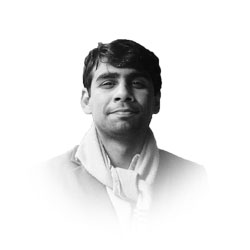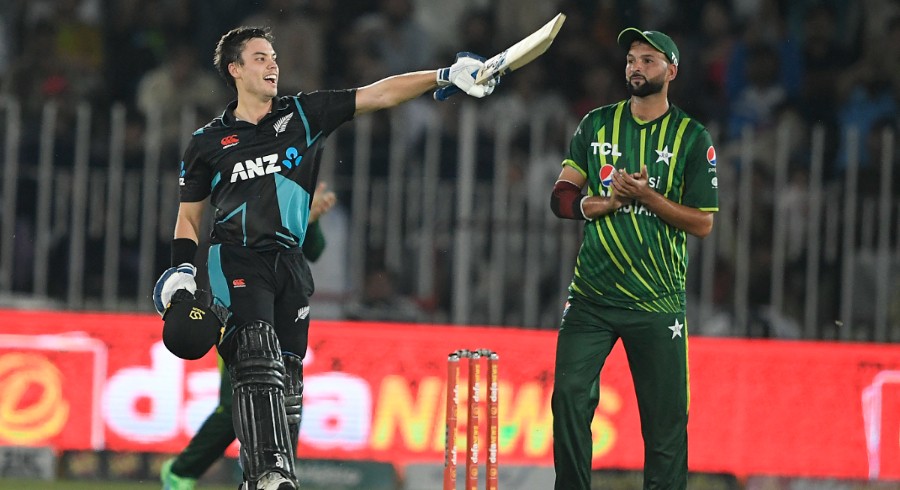By: Wali Ejaz Nekokara

Whenever we talk about the struggle for civilian supremacy and democracy, we forget to mention Muhammad Khan Junejo. This article is a bid to highlight the role of Junejo in restoring democracy and civilian supremacy (1985-1988). Under Gen. Zia-ul-haq’s dictatorial rule, Muhammad Khan Junejo emerged as a true democrat. People’s dissatisfaction with Zia’s dictatorship and political parties’ quest to restore democracy compelled Zia to civilianize his rule. However, Zia had to design the political system in a way that could maintain two things: the military’s permanence in politics and the process of Islamization.
Zia favored sharing power instead of transferring power to public representatives. Zia took three essential steps to civilianize his rule: reshaping the political system, referendum, and Restoration of the Constitution Order (RCO). For restructuring the political system, a commission was entrusted with the duty to chalk out a political plan compatible with the military regime. Maulana Zafer Ahmad Ansari presided over the commission, and this commission’s recommendations won Zia’s consent. Some of the crucial characteristics of the proposed system were a presidential form of government, limited powers of the parliament, and non-party elections. To legitimize Zia’s stay in power, a referendum was held. The question for the referendum was cleverly drafted as to whether people favored the Islamic system or not. The Movement for Restoration of Democracy (MRD was an alliance of left-wing and socialist forces) boycotted the referendum, claiming that only a small number of people had responded to the referendum. However, the Zia administration contended that the turn-out was 62.15pc, of which 97.71pc favored Islam and Zia. The referendum lacked transparency as the reports akin to the involvement of military and civil officers in filling the ballot boxes surfaced. Later, the then Chief Election Commission accepted the meddling in the referendum. After the referendum, non-party elections were conducted on 25 February 1985. On 2 March 1985, Zia issued the Revival of Constitution 1973 order (RCO). This order brought some fundamental changes to the Constitution. Zia did not abrogate the constitution but suspended and changed some parts. The RCO left the Prime Minister’s independence compromised. It empowered the president, and he was not bound to follow the advice of the cabinet. Similarly, this order gave constitutional cover to martial law orders and actions. Furthermore, this order supported military courts’ decisions. Finally, the president’s job was to nominate a Prime Minister following non-party elections.
As elections were held, President Zia had to nominate a Prime Minister. Some names (including Abdul Ghafoor Hoti, Mir Zaffarullah Jamali, Mohammad Aslam Khattak, Illahi Bakhsh Soomro, Makhdoom Hassan Mahmood, Hamid Raza Gillani and Muhammad Khan Junejo) were under consideration. The MLAs opined that the last Prime Minister Bhutto was Sindhi, and his hanging left people distraught. So, the new Prime Minister should also be from Sindh to appease the sense of deprivation. After deliberations, two names —Illahi Bakhsh Soomro and Muhammad Khan Junejo—were short-listed. Most of the MLAs were in favour of Illahi Bakhsh Soomro. However, Zia took the suggestion from Pir of Pagara, who was considered the former’s political mentor. Pir Sahib recommended Muhammad Khan Junejo. Thus, the name of Illahi Bakhsh Soomro was dropped. In the first interaction with Muhammad Khan Junejo before formally declaring his nomination, Zia informed Junejo that he had decided to nominate the latter as Prime minister. Shuja Nawaz writes, “A grim-faced Junejo did not thank the President, but immediately asked: When do you plan to remove martial law?” These words were shocking for Zia because he was expecting that Junejo would be thankful to him. Finally, on 23 March 1985, Zia formally appointed Muhammad Khan Junejo as Prime Minister.
After taking charge of the premiership, Junejo started advocating the cause of democracy. He vowed to restore civilian government soon. He did not include some of Zia’s nominated members in the cabinet by asserting his position as Prime Minister. However, he approved the nomination of Major General (R) Sahibzada Yaqub Ali Khan as Foreign Minister and Mahbub-ul-Haq as the Minister for Planning and Development. He was critical of inducting military men into the cabinet. Furthermore, Junejo did not approve the summary of Zia’s visit to Africa because he maintained that it was the job of the Prime Minister to go on foreign tours. He was unsympathetic to the privileges bestowed upon military officers. Thus, he replaced the civil and military officers’ Mercedes cars with small Suzuki. His words that he would put ‘Generals into Suzuki’ irked the senior army officers. In November 1985, the Eight Amendment was adopted, adding Article 58(2) (b) to the constitution. This amendment gave the president discretionary powers to dissolve the national assembly. The unbridled powers of Zia could not deter Junejo, and the latter kept pressing the former to restore the constitution. Eventually, on 30 December 1985, Zia took the plunge to lift martial law after ten years of it. Resultantly, political stagnancy decreased, and Benazir Bhutto returned to Pakistan following the removal of martial law.
On the foreign policy front, Junejo espoused the reconciliation policy contrary to Zia’s goals. He conducted a roundtable conference in which all political parties were invited to win their support for the solution to the Soviet-Afghan war. Zia construed Junejo’s efforts as an attack on his standpoint. Junejo wanted a peace dialogue with the Soviet Union to end the Afghan war. In contrast to this, Zia was of the view that there should be a pro-Pakistan interim government before concluding any agreement. Therefore, he was not ready to ink a deal with Najeeb-ullah’s regime. ISI also had a different stance, and it was favouring Pukhtun rule in Afghanistan and backing Gulbaddin Hikmatyar, a hardliner. Junejo doubted the foreign minister Yaqub Ali Khan as he was a close aide of Zia. In October 1987, the US Oil Tycoon Armand Hammer visited Pakistan with a plan to reinstate the former Afghan King. Gen. Zia, Gen. Hamid Gul, and Foreign Minister Yaqub Khan met the US envoy to formulate a strategy to bring King Zahir Shah to power. Junejo learned that Zia and Foreign Minister Yaqub Ali Khan betrayed him by designing a secret plan to deal with the Afghan issue. He fired Foreign Minister Yaqub Ali Khan and kept the foreign ministry under his control. He unofficially conveyed to the foreign office that no file should be sent to the President. Although President was more powerful, Junejo managed to bag a temporary victory on Afghan Issue. He inked the Geneva Accords in 1988. In turn, Najeebullah came to power. According to these accords, the Soviet Union had to withdraw from Afghanistan, Pakistan had to end its supply to Mujahideen, and Najeebullah’s government had to work till 1992. The differences in Afghan Policy made Junejo-Zia relations sour. The bitterness intensified when Junejo exercised his power to promote and appoint senior military officers.
On 10 April 1988, the Ojhri Camp tragedy occurred; the Junejo government formulated a committee to bring facts to the surface. The committee’s report suggested the removal of erstwhile ISI chief Gen. Akhtar Abdul Rehman, who had become Chairman of the Joint Chiefs Staff Committee at the time. Zia wanted to save his Generals; the report referred to as culprits. Finally, using Article 58 (2b), Zia dissolved the national assembly and dismissed the Junejo government. Junejo was a man of principles who continued his persistent efforts to restore democracy and civilian supremacy. Indeed, there may have been some weaknesses and mistakes of Junejo, but his positives carry more weight. The Junejo era is deemed the first experiment of hybrid rule. After the Junejo tenure, the tradition of hybrid rule got strengthened, but gradually the quality of politicians plummeted. Junejo’s example proves two things: one is that only a principled political leader can stand tall against the undemocratic rule. Second is that neither was the hybrid rule successful then nor is it today. We must learn from history.
The writer is an independent researcher and contributes to various national newspapers and think tanks. He mainly focuses on social, political, and religious issues in Pakistan and can be reached at [email protected]
The opinions expressed in this publication are those of the author. They do not purport to reflect the opinions or views of the ‘The Dayspring’

